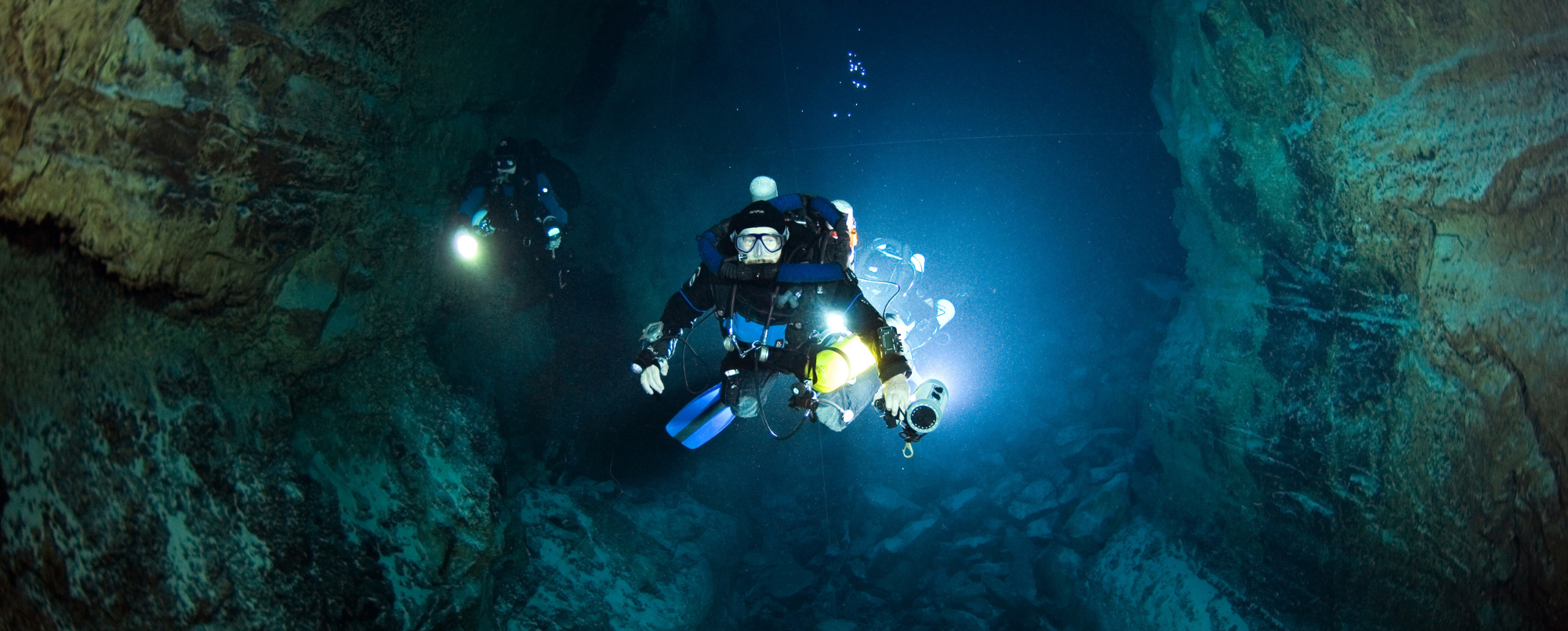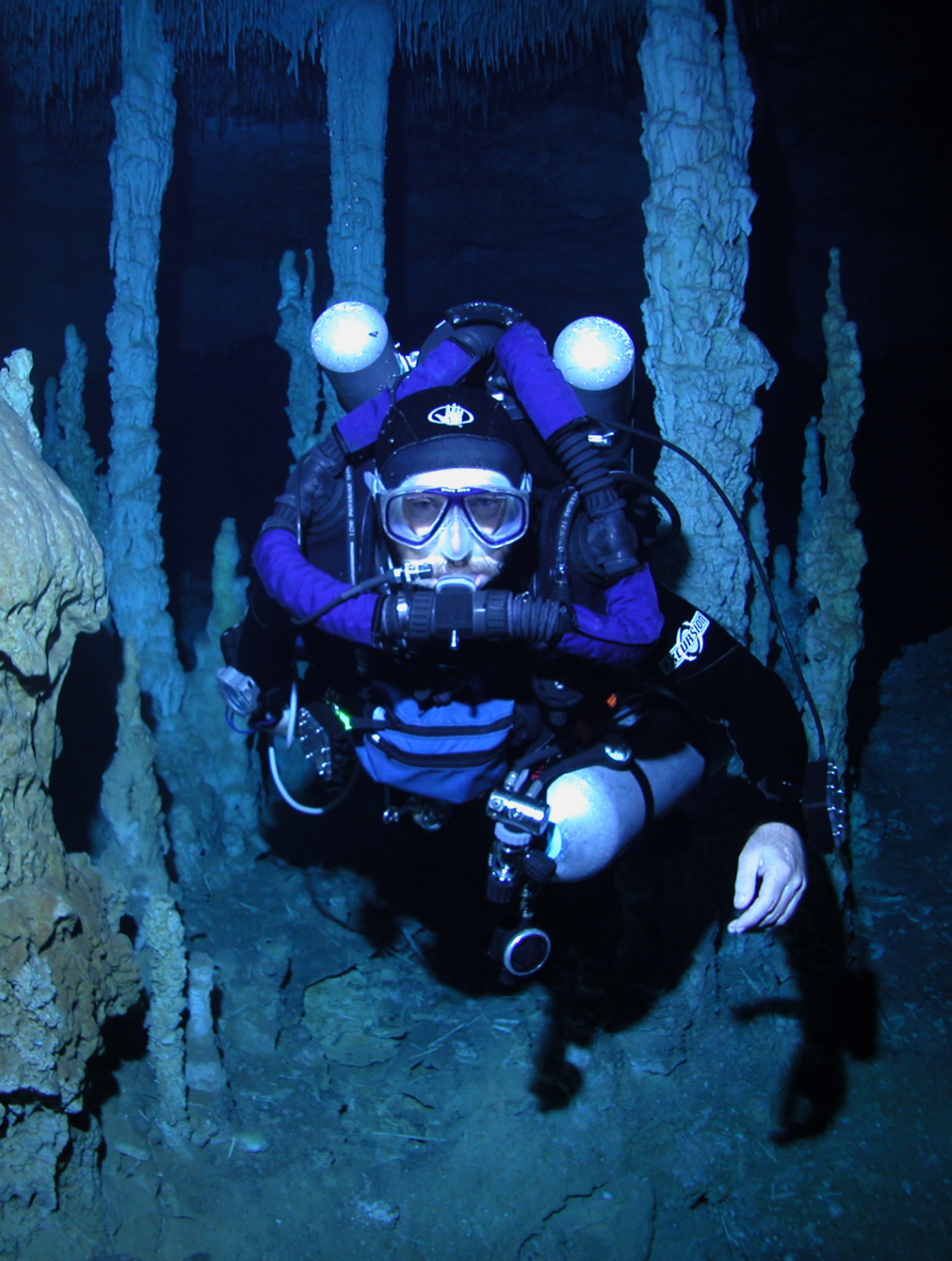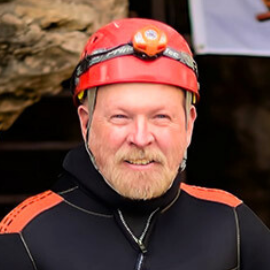-
Date:
21 Oct 2024
-
Location:
Room 3.2.15, Ciências ULisboa (in-person only)
-
Duration:
60'
-
Schedule:
12h00-13h00
-
Lecturer or Responsible:
Thomas M. Iliffe, Retired Professor of Marine Biology at Texas A&M University, USA


My research on marine caves began accidentally in 1977 when I obtained a job at the Bermuda Biological Station. Bermuda is a mid-Atlantic volcanic seamount, capped with eolian limestone. Near my home, I found numerous caves extending down to tidal, saltwater pools, with submerged passageways. My hobbies in scuba diving and cave exploration led me to wonder where these caves might lead.
Upon obtaining training and certification in cave diving, I began systematic exploration and investigation of the caves, discovering unexplored realms inhabited by a wealth of rare and endemic cave-adapted fauna. One of the most unusual finds was a new crustacean order Mictacea.
Based on these discoveries from Bermuda, I was curious to explore caves from elsewhere in the Atlantic. Learning about a saltwater cave on Lanzarote in the Canary Islands, I organized a cave diving expedition there in 1983. On our very first dive, we discovered a new species of the crustacean class Remipedia, previously only known from caves on the opposite side of the Atlantic Ocean.
In the 1985 and ’87, I organized expeditions to the South Pacific, first to Palau, and then island hopping from Tahiti across the Pacific to the Solomon Islands over a year-long period. In 1989, I obtained a faculty position at Texas A&M University where I spent the remainder of my academic career. I trained 15 graduate students, discovered more than 250 new cave species, published 276 journal articles and book chapters, and was featured in 20 TV documentaries on Netflix, BBC, National Geographic, History Channel, Discovery Channel, and others.
My research resulted from collaboration with scientists in a wide variety of disciplines including geology, taxonomy, phylogeny, ecology, evolution, neuroscience, and conservation. Another important aspect included my work with world renowned cave explorers and cave divers from around the world. It was only with team effort that we were able to succeed.
Over my lifetime I learned that it is essential to: 1. Be curious; 2. Explore more; 3. Collaborate; 4. Save caves.

Thomas M. Iliffe
Retired Professor of Marine Biology at Texas A&M University, USA

